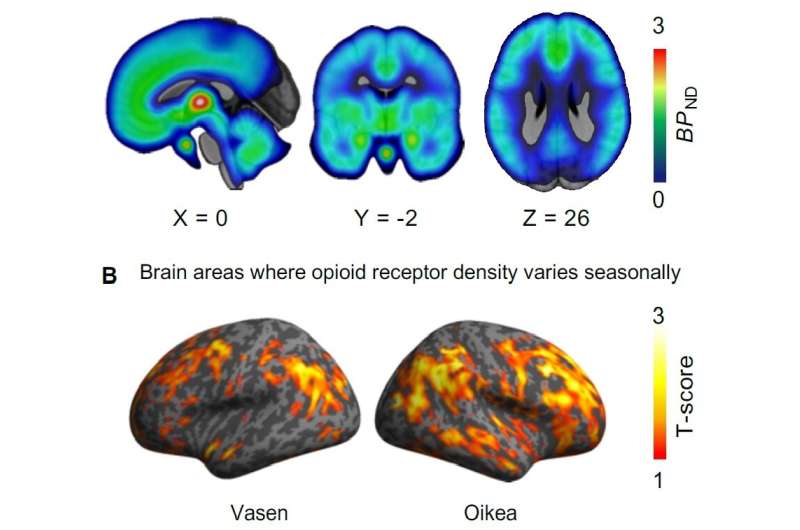
Seasons have an impact on our emotions and social life. Negative emotions are more subdued in the summer, whereas seasonal affective disorder rates peak during the darker winter months. Opioids regulate both mood and sociability in the brain.
In the study conducted at the Turku PET Centre, Finland, researchers compared how the length of daylight hours affected the opioid receptors in humans and rats.
“In the study, we observed that the number of opioid receptors was dependent on the time of the year the brain was imaged. The changes were most prominent in the brain regions that control emotions and sociability. The changes in the opioid receptors caused by the variation in the amount of daylight could be an important factor in seasonal affective disorder,” says Postdoctoral Researcher Lihua Sun from the Turku PET Centre and the University of Turku.
Animal studies confirm the significance of daylight
The researchers wanted to ensure that the changes in brain function were caused by the amount of daylight and not some other factor. To achieve this, they measured the opioid receptors in rats when the animals were kept in standard conditions where only the length of daylight hours was changed. The results were similar to those observed in humans.
“On the basis of the results, the duration of daylight is a particularly critical factor in the seasonal variation of opioid receptors. These results help us to understand the brain mechanisms behind seasonal affective disorder,” says Professor Lauri Nummenmaa from the Turku PET Centre.
Source: Read Full Article